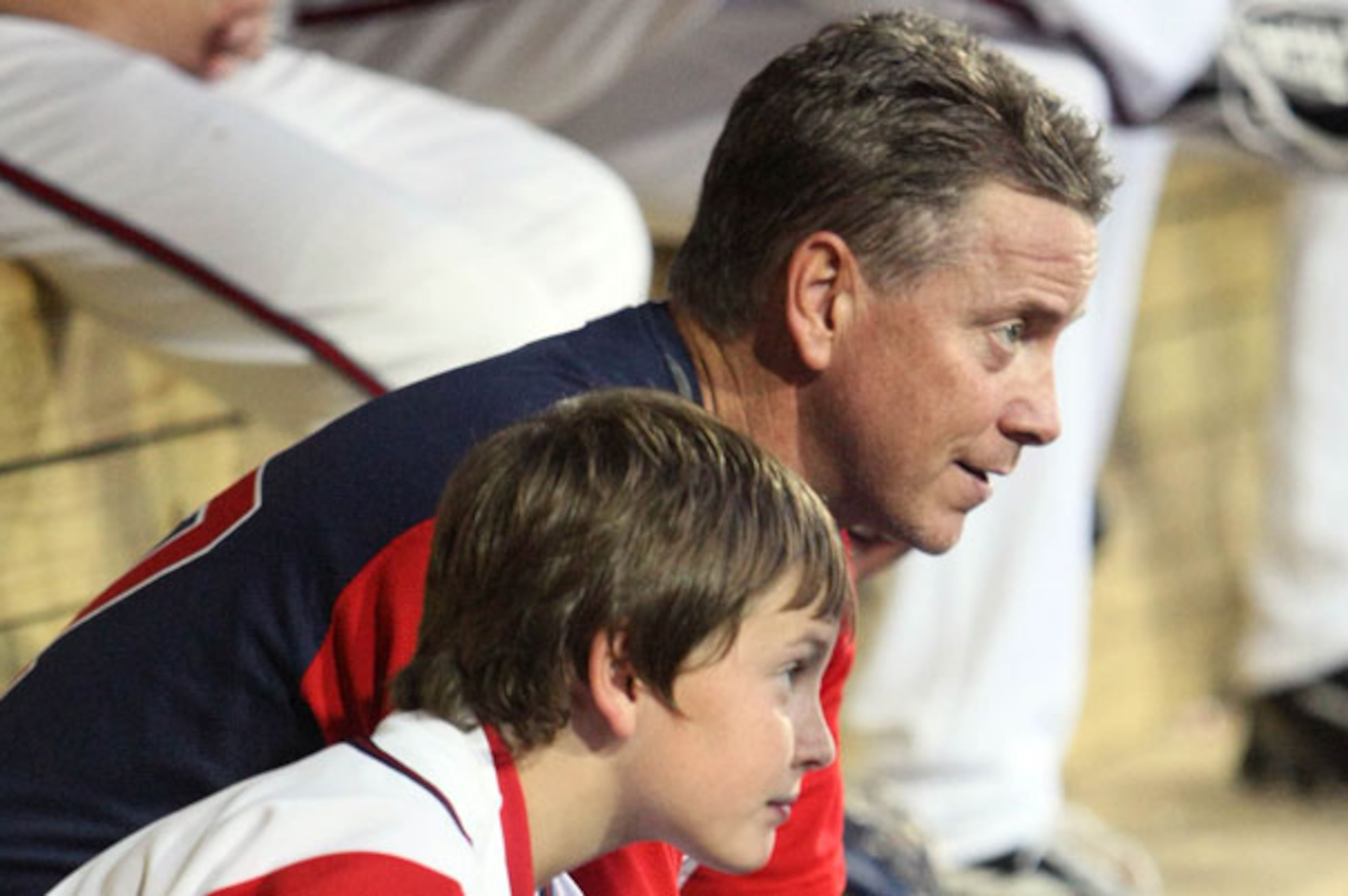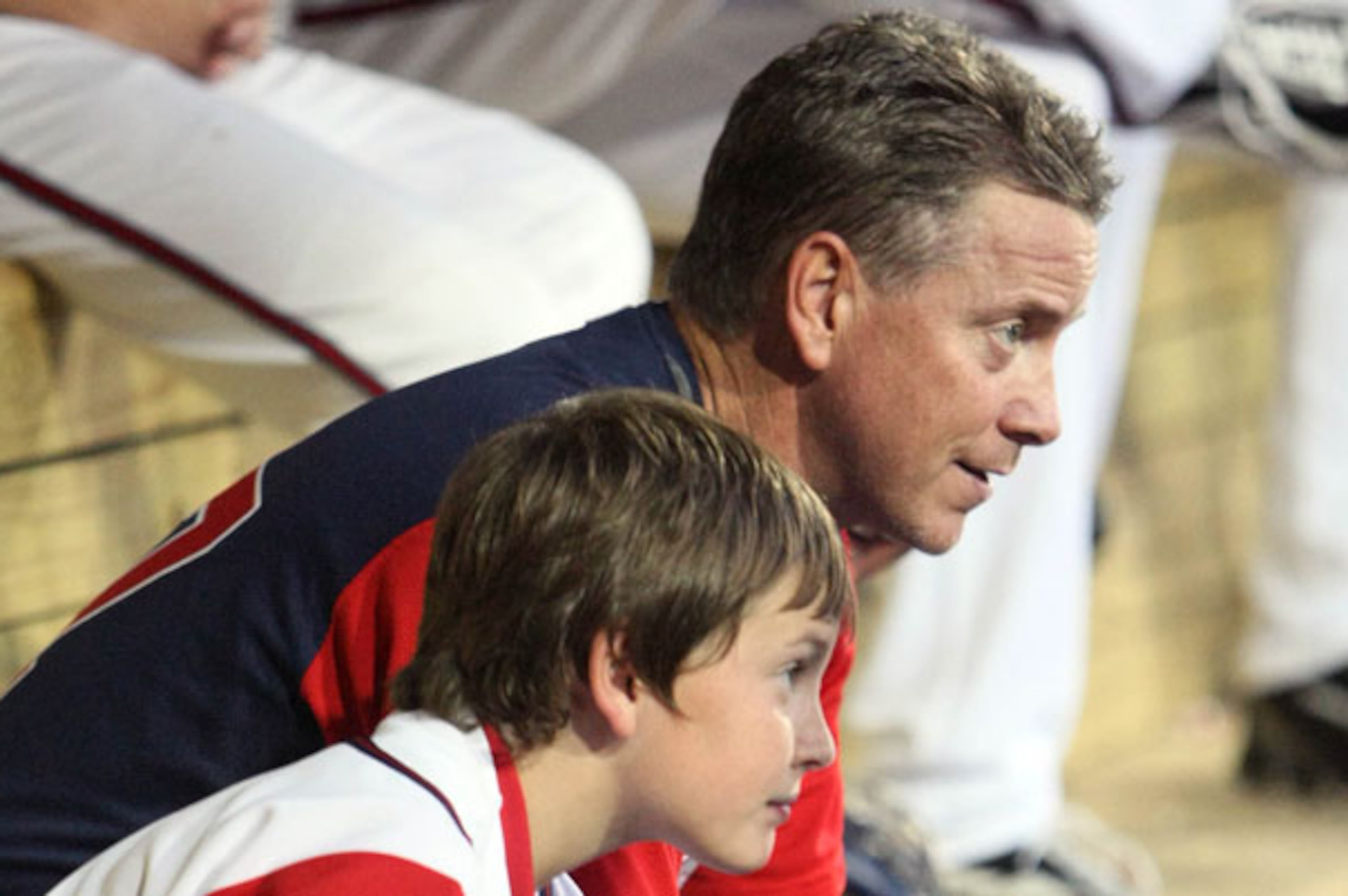Braves’ Bethancourt says he has learned from mistakes
At the center of this Braves’ gutting and rebuilding is trust. Trust that their plan will work. Trust that their scouting department gets far more right than wrong. Trust that none of the prospects expected to form the roster’s core for the next several seasons devolves into the next Brad Komminsk (and if you have to Google, that’s kind of the point).
Christian Bethancourt was expected to be part of the Braves’ future, and maybe he still will be. But for the past two months he has been in the minors in Gwinnett County — which is 36 miles north of Turner Field and an uncertain travel time south of the majors — and there’s some uncertainty about his career.
The Braves sent him to Triple A after he hit .198 in 29 games, struggled defensively and left coaches and management wondering about his daily game-preparation habits.
John Hart in July: “I don’t think he has embraced what it is he needs to do to sell out to his pitching staff, to drive the train. We sent him to Gwinnett, and I told (manager Brian Snitker) the boxes I wanted checked: shows up early, prepares for game, goes over scouting report, works the pitcher. Go through those intangibles.”
So Bethancourt is back in the simulator.
To his credit, he has stayed positive. He has improved his defense and game prep, Snitker said, and he was hitting .316 with an OPS of .822 entering the weekend. He’s certain to get called up when the roster expands in about two weeks, and how he looks could go a long way to determining whether the Braves stand pat this winter or look for another catcher to handle a young developing pitching staff.
“The player has to take some responsibility for keeping himself ready,” Snitker said. “I told Christian, ‘You’re going to get another chance. And when you do the ball is going to be in your court.’”
Bethancourt admits he was stung by the demotion in June, which forced the Braves to go with 38-year-old A.J. Pierzynski as the full-time catcher. (Pierzynski has played beyond expectations and held up.) The rookie now admits, with hindsight, that he struggled mentally with not being the everyday catcher.
“I’ve never been a player that didn’t play every day, and it wasn’t easy for me to learn how to prepare myself for every third or fourth day,” he said. “It’s different down here. I know my name’s going to be in the lineup every day. I’m not using that as an excuse. I was supposed to be ready every day. But things were not going well. I had a few passed balls. I had errors, catcher’s interference that lost a game. I’m human and humans make mistakes, but we learn from our errors.”
Baseball America listed Bethancourt as the Braves’ No. 2 prospect in 2014 behind pitcher Lucas Sims (now in Double-A). A year later, he was No. 3 in the organization behind Jose Peraza (traded to Los Angeles in the Hector Olivera deal) and Sims.
Prospect rankings are unscientific, but that’s not what anybody expected to see on his resume. The fact that Hart and John Schuerholz have shredded player development under former general manager Frank Wren also doesn’t bode well.
He is only 23 years old. He has all the physical tools. It seems way too early to pull the chute on him. But the Braves don’t have the offense, or much else, to overcome mistakes at catcher, and the young pitching element on the team makes this position crucial.
Snitker still believes Bethancourt has the tools to be a great player, but he also thinks too much was expected too soon.
“You have to be careful as organizations how you raise kids. You can’t single them out as being better than everybody else,” he said.
The Braves did that?
“I don’t know. I just think you just have to treat players as just one of the guys. Their performance will make them stand out eventually.”
Two years ago, the Braves weren’t going to spend the money to re-sign Brian McCann. He went to the New York Yankees. (Mark Teixeira and McCann, two former Braves, rank first and second, respectively, on the team in RBIs and first and third, respectively, in home runs.) This past winter, they chose to deal Evan Gattis, despite his modest salary, because they didn’t view him as an everyday catcher or worthy of keeping as an extra outfielder. But Bethancourt’s impending arrival was a factor in both decisions.
Bethancourt said when he was with the Braves, “I thought I would be the everyday guy,” but he thinks his time with Gwinnett has been beneficial.
“Obviously, nobody wants to be in Triple A,” he said. “That’s the reality. Nobody wants to be here; everybody wants to be in the big leagues. But while I’m here I have to make myself a better player so when I get back I’m a better player than I was when I was there.”
For now, the Braves have to trust he’s right.


